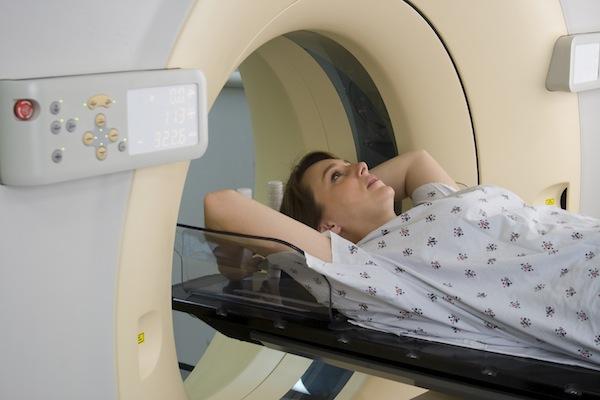
October 12, 2012 — Water diffusion measurements with magnetic resonance imaging (MRI) could decrease false-positive breast cancer results and reduce preventable biopsies, according to a new study published online in the journal Radiology. Researchers said the technique also could improve patient management by differentiating high-risk lesions requiring additional workup from other non-malignant subtypes.
Dynamic contrast-enhanced MRI (DCE-MRI) has emerged in recent years as a useful tool in breast cancer detection and staging. One of its primary limitations is a substantial number of false-positive findings that require biopsies.
“Many benign lesions demonstrate enhancement on DCE-MRI,” said Savannah C. Partridge, Ph.D., research associate professor at the University of Washington, Seattle Cancer Care Alliance. “We need another means for differentiating benign lesions from malignancies.”
One possible solution is diffusion-weighted imaging (DWI), an MRI technique that calculates the apparent diffusion coefficient (ADC) — a measure of how water moves through tissue.
“DWI has been used mostly in neurological applications, but it’s been studied more recently in breast imaging,” Partridge said. “It only adds a couple of minutes to the MRI exam and does not require additional contrast or any extra hardware.”
Research has shown that DWI is a promising tool for distinguishing between benign and malignant breast lesions. Normal breast tissue has a high ADC because water moves through it relatively freely, while most cancers have a lower ADC because their cells are more tightly packed and restrict water motion. However, significant overlap exists between the ADC values of non-malignant lesions and breast malignancies, and little is known about the ADC values of specific subtypes of non-malignant lesions.
For the new study, Partridge and colleagues evaluated the DWI characteristics of non-malignant lesions in 165 women. Based on ADC values above a previously determined diagnostic threshold, DWI successfully characterized 46 percent of non-malignant breast lesions identified as false-positive findings on DCE-MRI as benign.
“We were excited to see the number of false positives that could be reduced through this approach,” Partridge said. “DWI gives us extra microstructural information to distinguish among lesions. We can use ADC values to draw a cutoff above which we might not need to do a biopsy.”
The research team is planning a multicenter trial to validate the findings and determine how to best to incorporate ADC measures into clinical breast MRI interpretations. “We are very motivated to translate this promising technology to a clinically useful breast imaging tool,” Partridge said.
For more information: http://radiology.rsna.org


 February 18, 2026
February 18, 2026 









